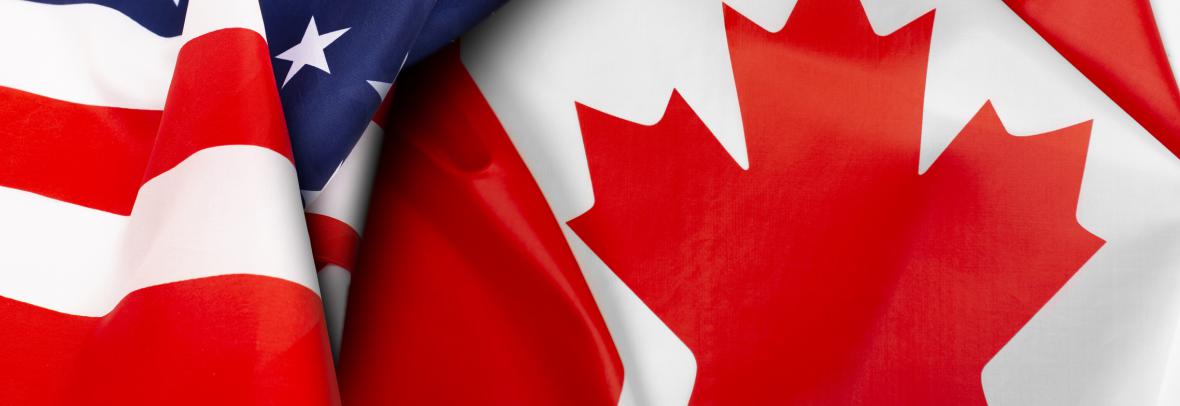
It’s likely more Canadians will snowbird in Fla. this year, but they must be fully vaccinated to return home – or even to vacation in a different Canadian province.
OTTOWA, Canada – Starting Oct. 30, the Canadian government will require all air travelers and passengers on interprovincial trains to be vaccinated against COVID-19.
The new policy, first announced in August, will affect all commercial air travelers, passengers on trains between provinces and cruise ship passengers. The government is also requiring employers in the federally regulated air, rail, and marine transportation sectors to establish vaccine mandates by Oct. 30.
The vaccine requirement does not apply to travelers younger than 12. A short transition period will allow travelers who are in the process of getting vaccinated to board if they can show a molecular test within 72 hours of travel, but only through Nov. 30.
“If you haven’t gotten your shots yet but want to travel this winter, let’s be clear. There will only be a few extremely narrow exceptions like a valid medical condition,” Prime Minister Justin Trudeau said in a Wednesday news conference. “For the vast, vast majority of people, the rules are very simple to travel: You’ve got to be vaccinated.”
Trudeau said the new travel measures will be “some of the strongest in the world.”
The country also requires most foreign nationals to be fully vaccinated to enter for nonessential purposes.
“When it comes to keeping you and your family safe, when it comes to avoiding lockdowns for everyone, this is no time for half measures,” he said.
Currently, air travelers entering Canada are required to show proof of negative COVID-19 PCR test results taken within 72 hours of their scheduled departure. Unvaccinated air travelers must take another COVID-19 test upon arrival to Canada and toward the end of a mandated 14-day quarantine upon arrival.
The additional measures are meant to encourage more people to get vaccinated. As of Wednesday, more than 72% of Canada’s population was fully vaccinated according to data from Johns Hopkins University and Medicine.
The Centers for Disease Control and Prevention and U.S. State Department each downgraded their travel advisories for Canada in August, but the U.S. border is set to remain closed to Canadian tourists through at least Oct. 21.
Air Canada, Canada’s largest domestic and international carrier, released a statement in support of the new measures in August, announcing that it would work with the government and its unions to implement the new policy.
“Although Air Canada awaits further details about today’s announcement on mandatory vaccinations, it is a welcome step forward in the evolving measures to protect the health and safety of airline employees, customers and all Canadians,” the statement reads.
The United States does not require vaccinations for domestic flights, and it’s unclear if that will change. When asked if the U.S. would follow Canada’s footsteps and implement harsher vaccine mandates for air travel, White House COVID-19 Response Coordinator Jeff Zients said Wednesday that the government was “not taking anything off the table.”
Who is affected by Canada’s vaccine mandate?
The new travel policy applies to:
- Passengers on domestic, transborder or international flights departing from Canadian airports.
- Passengers on VIA Rail and Rocky Mountaineer trains.
- Passengers on nonessential passenger vessels, such as cruise ships, on voyages at least 24 hours long.
What happens if travelers don’t comply?
Travelers who falsify information or fail to comply will face heavy fines.
Air travel passengers or employees can be fined up to $5,000 per violation, and employees or travelers on cruise ships can be fined up to $250,000 per violation, per day for failing to provide proof of vaccination.
How can travelers show proof of vaccination?
The Canadian government is developing a pan-Canadian proof of vaccination for international travel. The document will be available in a digital format and should make showing proof of vaccination “easy and quick” for travelers, according to the Canadian government.
“Vaccination is one of the most effective ways to fight COVID-19 and the Government of Canada will continue to take action to get as many Canadians vaccinated as possible,” the Canadian Government’s website reads.
Copyright 2021, USATODAY.com, USA TODAY
Go to Source
Author: kerrys



